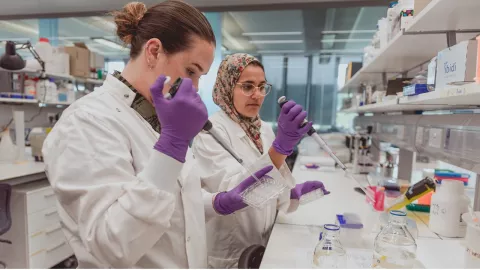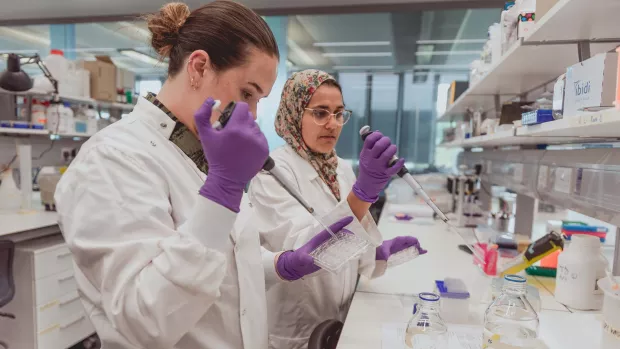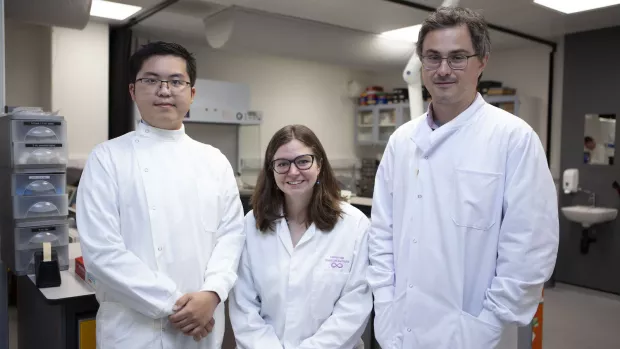
Could a wearable robot help you exercise?
Virtual reality, wearable robots and magnetic brain stimulation. Technology is at the forefront of 13 new research projects we've just announced.
Each year we run a competition to choose the best MS research projects from across the UK. This year we've committed to raise £1.3 million to fund 13 exciting new research projects.
The projects include research on MS progression, and studies exploring new technologies to manage MS symptoms.
Using technology to manage MS symptoms
We know how vital exercise is. It improves MS symptoms like fatigue, balance problems and pain. And it reduces the risk of fatal conditions like heart disease and stroke. But exercise is difficult for some people with MS, particularly if the MS is more advanced.
Dr Siva Nair from Royal Hallamshire Hospital and Amy Walker from Glasgow Caledonian University are both trying to make exercise more accessible. Their projects will explore how you can use wearable robots or virtual reality games to exercise - even if you use a wheelchair or find it hard to use your arms and hands.
And Dr Robert Dineen from the University of Nottingham will be investigating a new way to improve cognitive symptoms. The technique, called intermittent theta burst stimulation, uses a magnetic device placed on the side of your head to active specific brain regions.
Making progress on MS progression
Our researchers will also be working towards our number one goal, to slow or stop MS progression. Projects will focus on all three areas of our plan to stop MS, including:
- whether haematopoietic stem cell transplantation (HSCT) may cause damage to nerves through the use of chemotherapy
- the role of a type of immune cell called monocytes in myelin repair
- how myelin-making cells communicate with nerve cells, and whether this affects their ability to protect nerves from damage.
Involving people with MS
Expert scientists and people with MS select the projects with the highest quality science and best chance of making a real difference to people living with MS.
Our Director of Research, Dr Susan Kohlhaas, said: “More than 100,000 people live with MS in the UK and, for many people living with progressive forms of the condition, there are no treatments available. We believe we can stop MS, and until then we urgently need to find new and innovative ways to help everyone with the condition.
"We’re investing in these projects because they have the potential to significantly improve quality of life for everyone living with MS, and ultimately help us stop MS faster.”
We're closer than we've ever been to stopping MS
Will you help us invest in research to find treatments for everyone?




